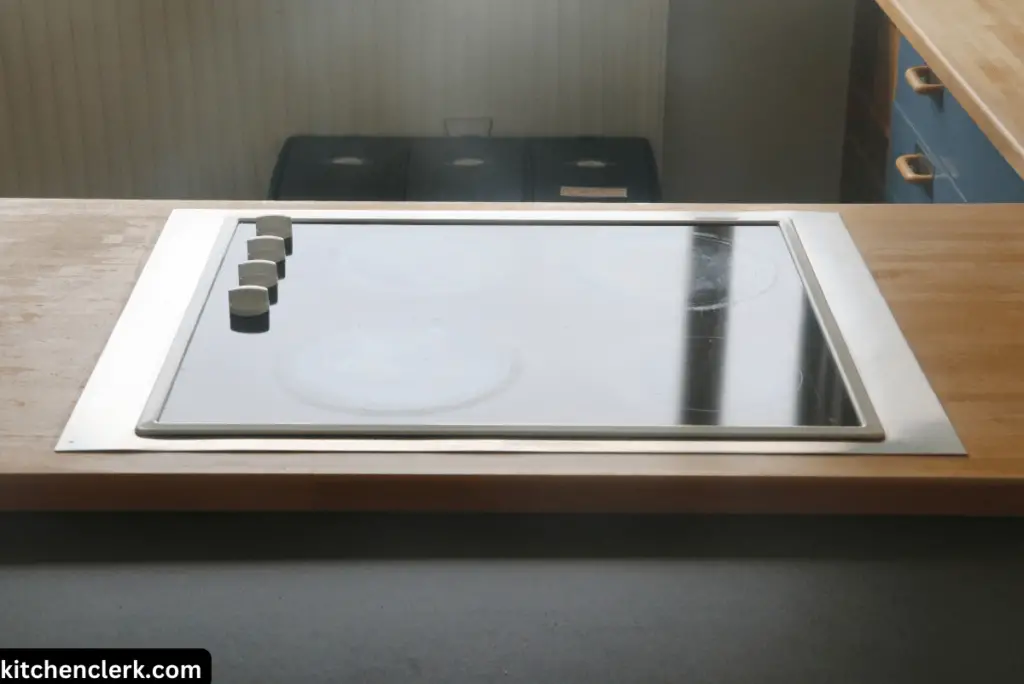Are you wondering if you can use solar power for your induction cooker? It’s a smart question, especially now when we’re all trying to use more green energy.
In this post, I’m going to talk about if it’s possible to hook up an induction cooker to solar panels.
We’ll look at what’s needed to make it work and if it really makes sense for everyday cooking. This is great for anyone trying to cook in a more eco-friendly way but still wants the quick and easy cooking that induction offers.
Let’s get into it and see how solar power and induction cooking can work together.
Can Induction Cooker Run On Solar?

Yes, an induction cooker can run on solar power as long as your solar power system is properly sized to meet its power requirements. This combination offers you energy efficiency, cost savings, and energy independence.
Understanding Induction Cooking
Unlike traditional stovetops that use gas or electric heating elements, induction cookers rely on electromagnetic fields to generate heat directly in the cookware. This technology offers several advantages, including faster heating times, precise temperature control, and increased energy efficiency.
Induction cookers require a steady supply of electrical power to operate. They typically operate at a higher wattage compared to other cooking appliances, which means they consume more energy. This brings us to the question of whether solar power can provide enough electricity to meet the demands of an induction cooker.
The Power Requirements of an Induction Cooker
To determine whether an induction cooker can run on solar power, it’s crucial to analyze the power requirements of the appliance. Most induction cookers range in wattage from 1,200 to 2,400 watts, with higher-end models often requiring more power. Additionally, the number of cooking zones in an induction cooker and the wattage of each zone also play a role in electricity consumption.
Solar power systems consist of solar panels that capture sunlight and convert it into electricity, which is then stored in batteries or fed directly into the electrical grid. The total power output of a solar system depends on factors such as the number and efficiency of the solar panels and the amount of sunlight available.
Sizing Your Solar Power System
To determine whether your solar power system can handle the power requirements of an induction cooker, you need to consider the following factors:
1. Induction cooker wattage
Start by calculating the maximum wattage of your induction cooker, taking into account the wattage of each cooking zone. If you have a multi-zone induction cooker, sum up the wattages to get the total power consumption. Keep in mind that the wattage can vary depending on the size and power settings of the cooking zones.
2. Peak sun hours
Next, you need to determine the peak sun hours in your location. Peak sun hours refer to the number of hours during the day when the sunlight is strong enough for effective solar power generation. This value varies depending on your geographical location and the time of year.
3. Solar panel efficiency
Solar panels have different efficiency ratings, which indicate how effectively they convert sunlight into electricity. Higher efficiency panels generate more electricity for a given area. Consider the efficiency of the solar panels you plan to install when calculating the power output of your system.
4. Battery capacity (If Applicable)
If you intend to store the solar power in batteries for use during periods of low sunlight or at night, you’ll need to account for the battery capacity. The battery capacity determines how much electricity can be stored and used when the sun is not shining.
Once you have these values, you can determine the size of your solar power system required to meet the power demands of your induction cooker.
Benefits of Using Solar Power for an Induction Cooker
Using solar power to run an induction cooker offers several benefits:
1. Energy efficiency
Induction cookers are already known for their energy efficiency, and when combined with solar power, the environmental impact can be greatly reduced. Solar energy is a clean and renewable source of power that contributes to lower greenhouse gas emissions compared to traditional energy sources.
2. Cost savings
You can reduce your electricity bills by relying on solar power for your induction cooker. Once the initial investment in solar panels and the associated equipment is made, the ongoing costs are significantly lower compared to conventional electricity.
3. Energy independence
Using solar power allows you to become more self-sufficient and less dependent on the electrical grid. This can be especially beneficial during power outages or in rural areas where access to electricity may be limited.
Conclusion
An induction cooker can indeed run on solar power, provided that your solar power system is properly sized to meet its power requirements. By calculating the wattage of your induction cooker, assessing the peak sun hours in your location, and considering the efficiency of your solar panels, you can determine the feasibility of running an induction cooker with solar power.
The use of solar power offers energy efficiency, cost savings, and energy independence, making it an excellent option for those looking to embrace environmentally friendly cooking practices.
Now that you have all the information you need, it’s time to explore the possibilities of using solar power for your induction cooker. If you have any further questions or comments, feel free to share them below.
